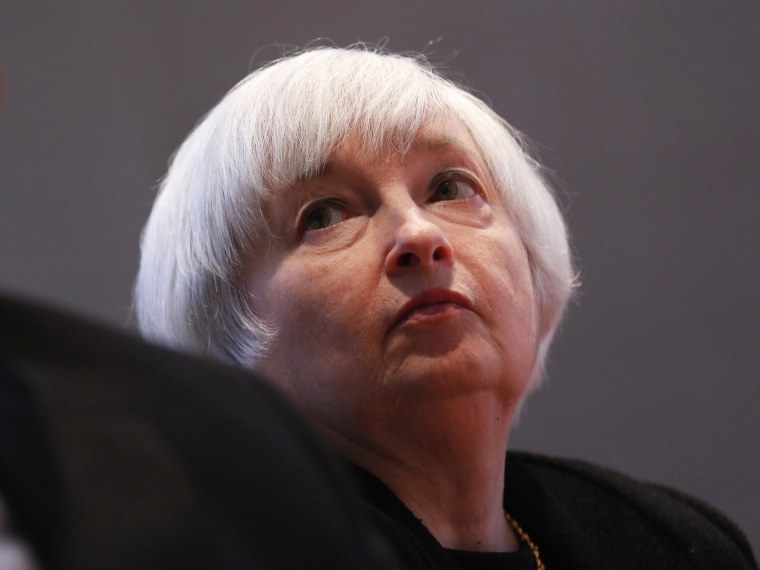President Obama--who has been criticized for the scarcity of women in his administration--will nominate Janet L. Yellen as chairwoman of the Federal Reserve on Wednesday, administration officials said.
Fed Chair is a powerful policy-shaping job, and the search for a replacement for current chairman Ben Bernanke has been long, unusually public, and bumpy.
Obama’s first choice for the job was clearly Larry Summers, a former adviser to the president; he dropped out of the running in mid-September in the face of opposition from Democratic senators including Elizabeth Warren. Urging Obama to choose Yellen, Senator Warren said "She has great experience, she has great judgment."
Yellen, who has been the Fed’s vice chairwoman since 2010, would be the first woman to run the central bank. She was a White House adviser, a Fed governor during the Clinton administration, and a professor at the University of California, Berkeley.
Bernanke's term ends on January 31. Yellen's four-year appointment as chairwoman must be confirmed by the Senate.
Yellen has been an advocate of government spending in order to boost the economy and help create jobs. The Fed’s decision to consider unemployment as a key concern--equal to inflation--in determining monetary policy was a case of Bernanke ultimately adopting Yellen’s point of view, according to a Bloomberg analysis.
Yellen has been tougher on Wall Street than Summers and other male economists.
As president of Harvard, Summers got in trouble by speculating--to a group of women scientists who had studied that issue--that women were underrepresented in science because of inherent, gender-based differences in ability.
The controversy helped cost Summers his job at Harvard (he had alienated much of the male faculty as well). There's a satisfying irony in the fact that Summers' history of abrasiveness made him unacceptable for the Fed Chair job, and his taking himself out of contention opened the door for a woman.
